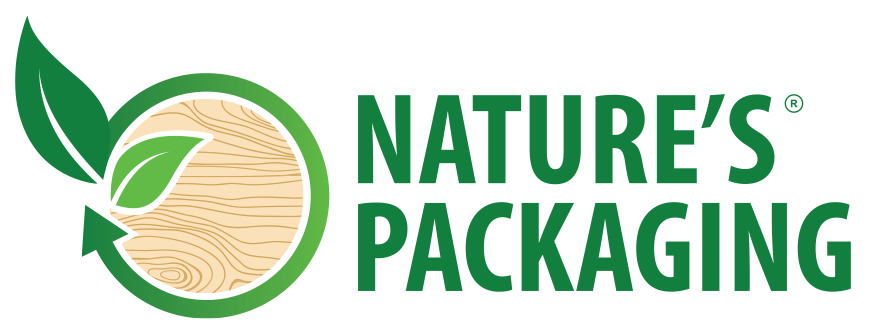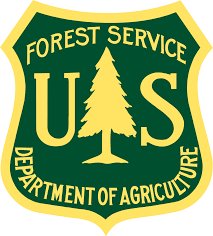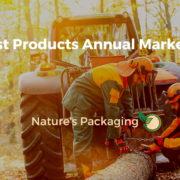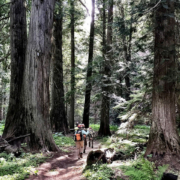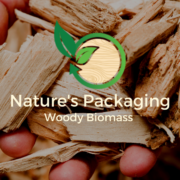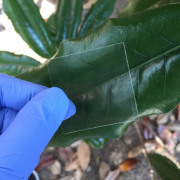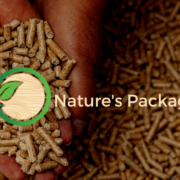All Things Wood: USFS-Forest Products Laboratory
With a recycling rate at 95%, wood pallets and containers are an essential part of environmentally friendly initiatives to create a more sustainable supply chain. Much of the research in wood products as a renewable, sustainable resource is conducted by the forest products industry in conjunction with government entities. In this week’s post, Nature’s Packaging will explore one of those agencies with a deeper dive into the United States Forest Service-Forest Products Lab.
Origin
The Forest Products Laboratory (FPL) was created in 1909 under the direction of the 1st Chief of the Forest Service – Gifford Pinchot. He, along with McGarvey Cline and Overton Price, recognized the need for a facility to study, research, and test the physical properties of wood for commercial, industrial, and military uses.
McGarvey Cline is credited with being the driving force behind the creation of the lab and he led the initiative to align with a university. Cline realized that seeking a collaborative agreement with a university would benefit both the pathway for technical study and research of wood, and develop a steady stream of expertise for the forest products community. He also selected the first 45 scientists and personnel to staff the lab.
McGarvey Cline chose the University of Wisconsin at Madison as the official location of the first Forest Products Laboratory and was appointed its first official director. The official ceremony of dedication was conducted on June 4th, 1910 with an upgraded building and laboratory facility built in 1932.
Vision & Mission
The current strategic plan of the Forest Products Lab was devised in 2010. It includes both the mission and vision statements of the FPL:
Mission – To identify and conduct innovative wood and fiber utilization research that contributes to conservation and productivity of the forest resource, thereby sustaining forests, the economy, and quality of life.
Vision – To be a world leader in innovative wood utilization research that significantly improves quality of life and national competitiveness while conserving wood and fiber.In reaching our vision, we will help create a future in which people throughout the world benefit from healthy forests and grasslands that provide round wood, solid sawn wood, composites, fiber, chemicals, energy, and other renewable materials in a sustainable manner.
Research Areas
The focus of the FPL is currently centered around 5 key areas of emphasis:
Advanced Composites – representing more than 40% of the total materials used in residential construction, the FPL works to create composite products from bio-based materials. Composites are especially useful because they can be created from fibers, particles, and flakes from smaller tree species and can also utilize post-industrial and post-consumer wood waste materials.
Advanced Structures – centered around creating innovative wood-based technologies for housing and buildings like engineered wood products, moisture control, performance coatings and finishes, adhesives, wood preservation and composites. Many of the materials used in modern wood frame house and building construction originate here.
Forest Bio-refinery – focused on the development of bio-based fuels and chemicals. This group of technologies utilize chemical, biochemical, and thermal methods to create fuels and chemicals from biomass. Secondarily, this area also works on how to efficiently and effectively remove the woody biomass that can choke forests and create extreme wildfire situations.
Nanotechnology – research in nanocellulose technology through the use of structural, chemical, and mechanical techniques. This section also launched the Nanocellulose Pilot Plant in 2012, which has become a premiere worldwide research facility for the science.
Woody Biomass Utilization – concentrating on the utilization of small diameter, overstocked and underutilized tree material that represent significant forest overgrowth. This area of emphasis has worked to identify other ways to use this material to create profitable by-products and businesses. Examples would include structural material for use in bridges, walkways, and buildings.
FPL & Wood Pallets
The Pallet Foundation, in conjunction with the National Wooden Pallet & Container Association, recently released an Environmental Product Declaration (EPD). This important document is made available to the public and provides transparent, factual, product specific environmental data and information which is independently verified through the UL Environment EPD program.
A key part of the EPD is the Life-Cycle Assessment which was a study conducted by the Forest Products Lab that evaluated the environmental impact of manufacturing and recycling wooden pallets. The study covered the cradle-to-grave life-cycle stages of the wooden pallet supply chain using an FPL life-cycle assessment methodology. This included: sourcing of raw material, product manufacturing, transportation, and reuse, repair, and final disposal of pallets.
The overall conclusion is that recycling and proper end of lifecycle disposal practices with wooden pallets are carbon neutral. Because of the difficulty in tracking pallets through the supply chain, a key feature of the study was an assessment based on a single repair of a pallet. Typically, in real world situations, pallets are repaired multiple times over the life of the product. This would increase the positive environmental impact of wood pallets over their lifetime:
Wood pallets and their components are easy to repair. This study considered a single repair, which was conservative and thus probably overestimated the environmental impacts of a sectoral analysis as indicated by the repair and reuse stage [B2]. If more repairs were considered, less virgin wood material would be required in addition to extending the RSL, which would probably have a substantial positive environmental impact because of how much the wood material inputs affected the GHG profile.
The Future
Since 1910, The US Forest Service – Forest Products Lab has endeavored to provide meaningful facts, data, and science that utilizes wood as its primary resource. Going into the future, the FPL will work to address the critical challenges that affect our modern world. These challenges include:
Carbon Sequestration – forest products research to improve the mitigation of greenhouse gas emissions
Sustainable Forestry – sustainable development of forests in the face of worldwide exponential population growth and deforestation
Alternative Energy Sources – ever increasing energy demands coupled with the need to develop new alternatives and create more efficient energy sources that will touch everything from transportation to housing
Urbanization – incorporating and improving forest conservation, maintenance, and growth in the face of increased urban development
Globalization – informing decisions from a local, national, global level by understanding the interconnectedness of all nations and people across the globe and how forests and trees play a key role as a resource
Technological Change – staying at the forefront of information dissemination and structuring accessibility to information utilizing modern communication technologies
Economic Forces – the status of both the US and global economy play a key role in determining how research and study is conducted and how the results are implemented to the benefit of all concerned
Political & Social Forces – All branches of the US government and the public itself will continue to have a profound impact and strong influence on the FPL as it continues to lead research and science in the areas of sustainability, renewable resources, environmental health, and industrial processes.
The Forest Products Lab will continue to uphold its mission, vision, and strategic plan into the 21st century and promote the healthy, sustainable growth of US forests. The lab will also continue to develop cutting edge technologies and science that further enhances the renewable resource of wood and traditional forest products.
